This project creates a time lapse camera using a 5MP ArduCam. You can set the lapse interval to however many seconds you want, and then the camera will take a picture at that interval.
Note
You can set the reolution for the ArduCam from 2592×1944 down to 320×240. Remember that higher resolution pictures take longer to process and so motion will be more blurred at higher resolutions.
Pages 15 -16 – https://www.arducam.com/downloads/shields/ArduCAM_Camera_Shield_Software_Application_Note.pdf
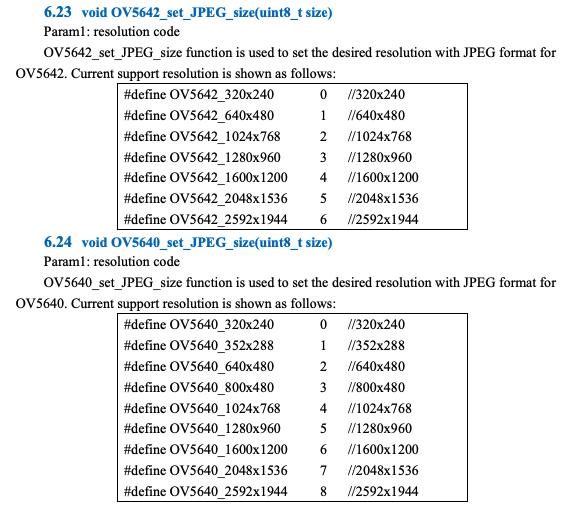
Prerequisite Classes:
Library
- ArduCam Library – https://github.com/ArduCAM/Arduino
- DS3231 Library – http://www.rinkydinkelectronics.com/library.php?id=73
Links
- ArduCAM Mini Cameras Tutorial – https://www.arducam.com/knowledge-base/mini-tutorial/
- ArduCam PDF with Resolution Settings on Page 15-16 – https://www.arducam.com/downloads/shields/ArduCAM_Camera_Shield_Software_Application_Note.pdf
Functional Parts in the Project:
- Arduino Uno – https://store.arduino.cc/usa/arduino-uno-rev3
- ArduCam 5MP Mini Module – https://amzn.to/3fdadEf
- Data Recorder Shield with RTC – https://amzn.to/3c6kNuP
- CR1220 Batteries – https://amzn.to/2X6h4ch
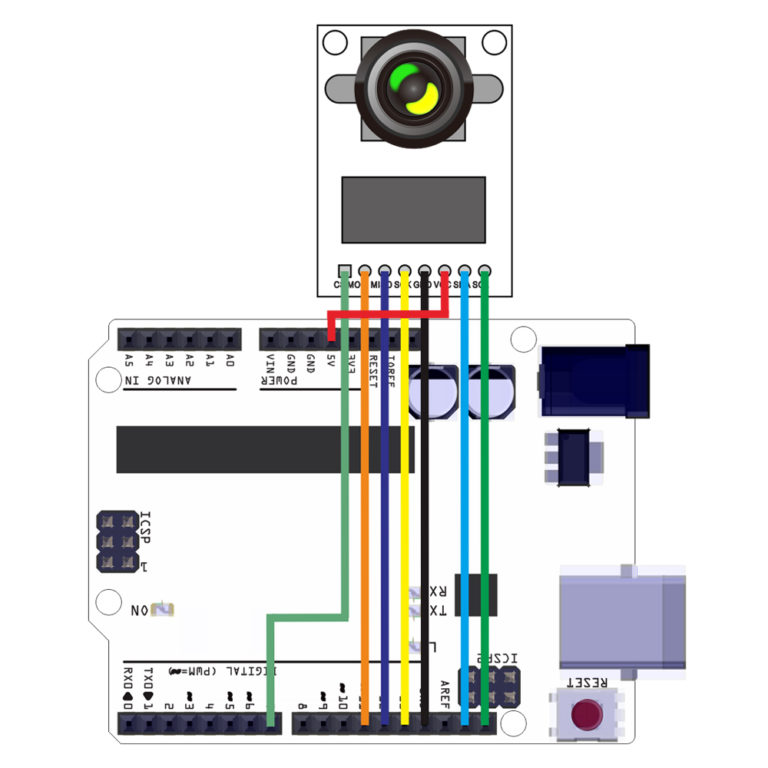

//Modification of Example: ArduCAM_Mini_5MP_Plus_Multi_Capture2SD
#include <Wire.h>
#include <ArduCAM.h>
#include <SPI.h>
#include <SD.h>
#include "memorysaver.h"
//This demo can only work on OV5640_MINI_5MP_PLUS or OV5642_MINI_5MP_PLUS platform.
#if !(defined (OV5640_MINI_5MP_PLUS)||defined (OV5642_MINI_5MP_PLUS))
#error Please select the hardware platform and camera module in the ../libraries/ArduCAM/memorysaver.h file
#endif
//ETCG Notes -- Change Number of Pictures Taken Per Function Call
#define FRAMES_NUM 0x00
// set pin 7 as the slave select for the digital port for ArduCam:
const int CS = 7;
//ETCG Notes -- Change Digital Pin for SD Module/ Shield
#define SD_CS 10
//ETCG Note -- RTC/ Real Time Clock Code
#include <DS3231.h>
DS3231 rtc(SDA, SCL);
int timeLapseLength = 60;
long lapseTimeStamp;
//ETCG Note -- Variable for Filename
String fileName;
bool is_header = false;
int total_time = 0;
#if defined (OV5640_MINI_5MP_PLUS)
ArduCAM myCAM(OV5640, CS);
#else
ArduCAM myCAM(OV5642, CS);
#endif
uint8_t read_fifo_burst(ArduCAM myCAM);
void setup() {
// put your setup code here, to run once:
uint8_t vid, pid;
uint8_t temp;
#if defined(__SAM3X8E__)
Wire1.begin();
#else
Wire.begin();
#endif
Serial.begin(115200);
Serial.println(F("ArduCAM Start!"));
// set the CS as an output:
pinMode(CS, OUTPUT);
digitalWrite(CS, HIGH);
// initialize SPI:
SPI.begin();
//Reset the CPLD
myCAM.write_reg(0x07, 0x80);
delay(100);
myCAM.write_reg(0x07, 0x00);
delay(100);
while (1) {
//Check if the ArduCAM SPI bus is OK
myCAM.write_reg(ARDUCHIP_TEST1, 0x55);
temp = myCAM.read_reg(ARDUCHIP_TEST1);
if (temp != 0x55)
{
Serial.println(F("SPI interface Error!"));
delay(1000); continue;
} else {
Serial.println(F("SPI interface OK.")); break;
}
}
#if defined (OV5640_MINI_5MP_PLUS)
while (1) {
//Check if the camera module type is OV5640
myCAM.rdSensorReg16_8(OV5640_CHIPID_HIGH, &vid);
myCAM.rdSensorReg16_8(OV5640_CHIPID_LOW, &pid);
if ((vid != 0x56) || (pid != 0x40)) {
Serial.println(F("Can't find OV5640 module!"));
delay(1000); continue;
} else {
Serial.println(F("OV5640 detected.")); break;
}
}
#else
while (1) {
//Check if the camera module type is OV5642
myCAM.rdSensorReg16_8(OV5642_CHIPID_HIGH, &vid);
myCAM.rdSensorReg16_8(OV5642_CHIPID_LOW, &pid);
if ((vid != 0x56) || (pid != 0x42)) {
Serial.println(F("Can't find OV5642 module!"));
delay(1000); continue;
} else {
Serial.println(F("OV5642 detected.")); break;
}
}
#endif
//Initialize SD Card
while (!SD.begin(SD_CS))
{
Serial.println(F("SD Card Error!")); delay(1000);
}
Serial.println(F("SD Card detected."));
//Change to JPEG capture mode and initialize the OV5640 module
myCAM.set_format(JPEG);
myCAM.InitCAM();
myCAM.set_bit(ARDUCHIP_TIM, VSYNC_LEVEL_MASK);
myCAM.clear_fifo_flag();
myCAM.write_reg(ARDUCHIP_FRAMES, FRAMES_NUM);
}
void loop() {
//ETCG Note -- RTC/ Real Time Clock Code
rtc.begin();
// put your main code here, to run repeatedly:
myCAM.flush_fifo();
myCAM.clear_fifo_flag();
//ETCG Notes -- Change Resolution in set_JPEG_size
#if defined (OV5640_MINI_5MP_PLUS)
myCAM.OV5640_set_JPEG_size(OV5640_2592x1944); delay(1000);
#else
myCAM.OV5642_set_JPEG_size(OV5642_2592x1944); delay(1000);
#endif
//ETCG Notes -- Check if Time Lapse has been long enough and if So Take Picture
if (rtc.getUnixTime(rtc.getTime()) - lapseTimeStamp > timeLapseLength) {
lapseTimeStamp = rtc.getUnixTime(rtc.getTime());
//Start capture
myCAM.start_capture();
Serial.println(F("start capture."));
total_time = millis();
while ( !myCAM.get_bit(ARDUCHIP_TRIG, CAP_DONE_MASK));
Serial.println(F("CAM Capture Done."));
total_time = millis() - total_time;
Serial.print(F("capture total_time used (in miliseconds):"));
Serial.println(total_time, DEC);
total_time = millis();
read_fifo_burst(myCAM);
total_time = millis() - total_time;
Serial.print(F("save capture total_time used (in miliseconds):"));
Serial.println(total_time, DEC);
//Clear the capture done flag
myCAM.clear_fifo_flag();
delay(5000);
} else {
Serial.print("Waiting: ");
Serial.println(timeLapseLength - (rtc.getUnixTime(rtc.getTime()) - lapseTimeStamp));
}
}
uint8_t read_fifo_burst(ArduCAM myCAM)
{
uint8_t temp = 0, temp_last = 0;
uint32_t length = 0;
static int i = 0;
static int k = 0;
char str[8];
File outFile;
byte buf[256];
length = myCAM.read_fifo_length();
Serial.print(F("The fifo length is :"));
Serial.println(length, DEC);
if (length >= MAX_FIFO_SIZE) //8M
{
Serial.println("Over size.");
return 0;
}
if (length == 0 ) //0 kb
{
Serial.println(F("Size is 0."));
return 0;
}
myCAM.CS_LOW();
myCAM.set_fifo_burst();//Set fifo burst mode
i = 0;
while ( length-- )
{
temp_last = temp;
temp = SPI.transfer(0x00);
//Read JPEG data from FIFO
if ( (temp == 0xD9) && (temp_last == 0xFF) ) //If find the end ,break while,
{
buf[i++] = temp; //save the last 0XD9
//Write the remain bytes in the buffer
myCAM.CS_HIGH();
outFile.write(buf, i);
//Close the file
outFile.close();
Serial.println(F("OK"));
is_header = false;
myCAM.CS_LOW();
myCAM.set_fifo_burst();
i = 0;
}
if (is_header == true)
{
//Write image data to buffer if not full
if (i < 256)
buf[i++] = temp;
else
{
//Write 256 bytes image data to file
myCAM.CS_HIGH();
outFile.write(buf, 256);
i = 0;
buf[i++] = temp;
myCAM.CS_LOW();
myCAM.set_fifo_burst();
}
}
else if ((temp == 0xD8) & (temp_last == 0xFF))
{
is_header = true;
myCAM.CS_HIGH();
//ETCG Note -- Create Filename for Image
long timeStamp = rtc.getUnixTime(rtc.getTime());
timeStamp = timeStamp - 1500000000;
fileName = String(timeStamp) + ".jpg";
outFile = SD.open(fileName, O_WRITE | O_CREAT | O_TRUNC);
if (! outFile)
{
Serial.println(F("File open failed"));
while (1);
}
myCAM.CS_LOW();
myCAM.set_fifo_burst();
buf[i++] = temp_last;
buf[i++] = temp;
}
}
myCAM.CS_HIGH();
return 1;
}
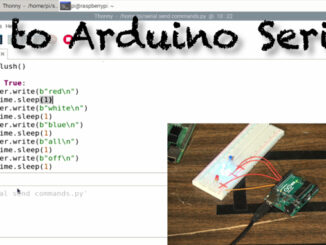
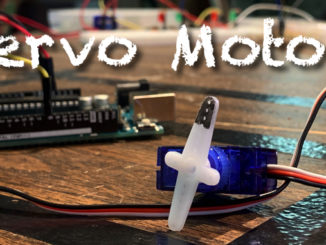
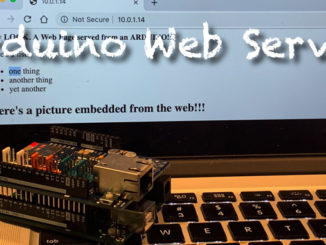
Be the first to comment